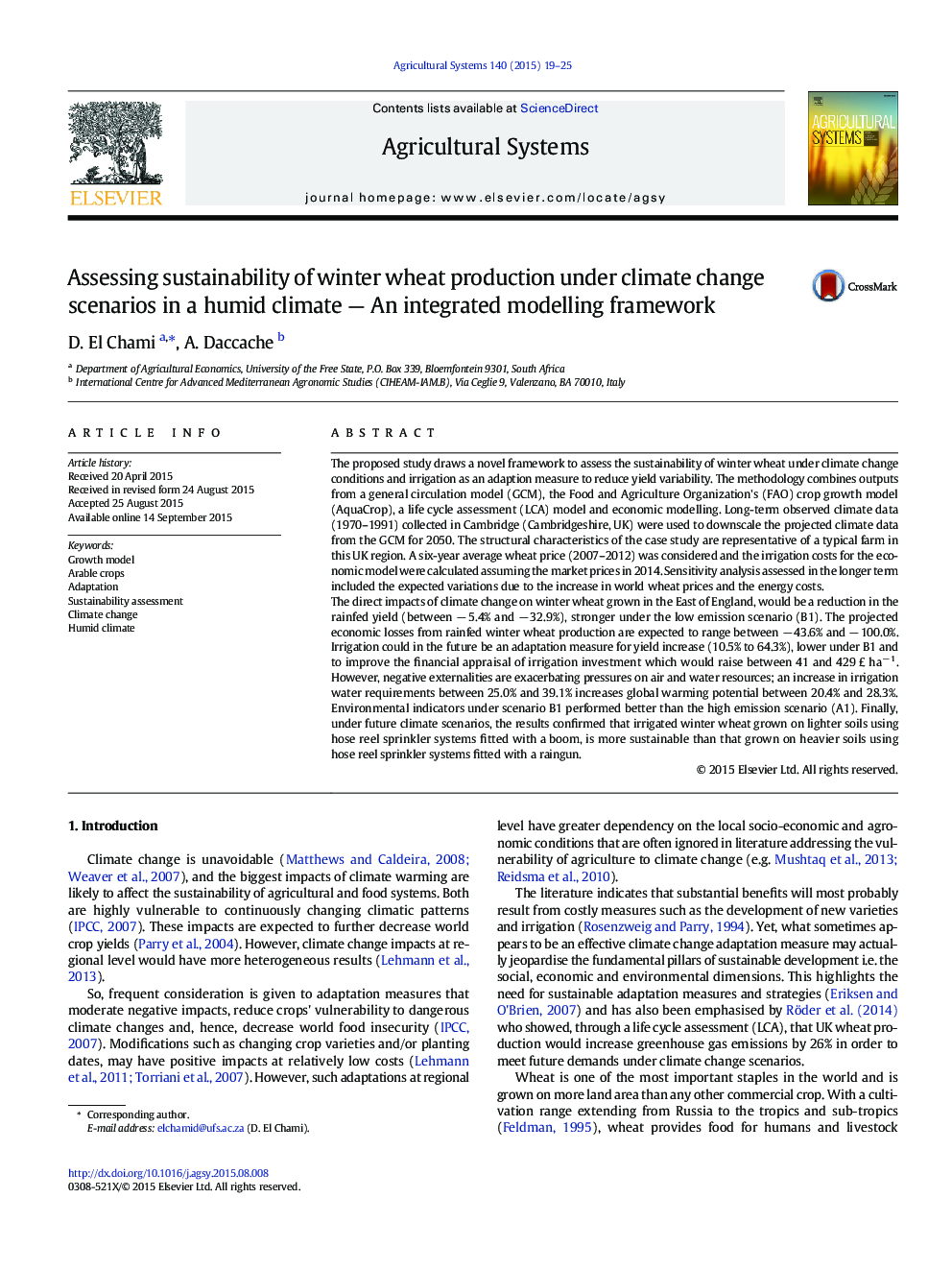| کد مقاله | کد نشریه | سال انتشار | مقاله انگلیسی | نسخه تمام متن |
|---|---|---|---|---|
| 4491124 | 1623230 | 2015 | 7 صفحه PDF | دانلود رایگان |
• A novel framework to assess the sustainability of agricultural systems under climate change conditions;
• It combines outputs from a GCM, a crop growth model, a LCA model and economic modelling;
• The impact on winter wheat grown in the East of England is a reduction in the rainfed yield, stronger under scenario (B1).
• Irrigation improves yields and the financial appraisal of irrigation investment but increases IWRs and GWP.
The proposed study draws a novel framework to assess the sustainability of winter wheat under climate change conditions and irrigation as an adaption measure to reduce yield variability. The methodology combines outputs from a general circulation model (GCM), the Food and Agriculture Organization's (FAO) crop growth model (AquaCrop), a life cycle assessment (LCA) model and economic modelling. Long-term observed climate data (1970–1991) collected in Cambridge (Cambridgeshire, UK) were used to downscale the projected climate data from the GCM for 2050. The structural characteristics of the case study are representative of a typical farm in this UK region. A six-year average wheat price (2007–2012) was considered and the irrigation costs for the economic model were calculated assuming the market prices in 2014. Sensitivity analysis assessed in the longer term included the expected variations due to the increase in world wheat prices and the energy costs.The direct impacts of climate change on winter wheat grown in the East of England, would be a reduction in the rainfed yield (between − 5.4% and − 32.9%), stronger under the low emission scenario (B1). The projected economic losses from rainfed winter wheat production are expected to range between − 43.6% and − 100.0%. Irrigation could in the future be an adaptation measure for yield increase (10.5% to 64.3%), lower under B1 and to improve the financial appraisal of irrigation investment which would raise between 41 and 429 £ ha− 1. However, negative externalities are exacerbating pressures on air and water resources; an increase in irrigation water requirements between 25.0% and 39.1% increases global warming potential between 20.4% and 28.3%. Environmental indicators under scenario B1 performed better than the high emission scenario (A1). Finally, under future climate scenarios, the results confirmed that irrigated winter wheat grown on lighter soils using hose reel sprinkler systems fitted with a boom, is more sustainable than that grown on heavier soils using hose reel sprinkler systems fitted with a raingun.
Journal: Agricultural Systems - Volume 140, November 2015, Pages 19–25
